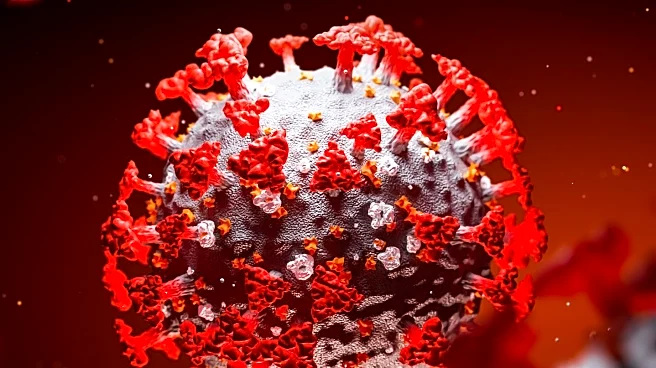What's Happening?
The World Health Organization (WHO) and the International Medical Corps are actively involved in addressing a new Ebola outbreak in Congo's Kasai province. This marks the first outbreak in the region in 18 years. The WHO has delivered 400 vaccine doses to the epicenter in Bulape, with plans to send an additional 1,500 doses from Kinshasa. The outbreak, confirmed on September 4, has seen suspected cases rise from 28 to 68, with 16 deaths reported. The response is challenged by limited access and funding, with the WHO estimating a $20 million cost for the next three months. The U.S. had previously supported Ebola responses, but recent funding cuts pose additional challenges.
Why It's Important?
The outbreak's management is crucial to prevent further spread, especially given the region's poor infrastructure and limited healthcare resources. The involvement of international organizations like the WHO and the International Medical Corps highlights the global nature of health crises and the need for coordinated responses. The outbreak's financial demands underscore the importance of sustained international support, particularly from countries like the U.S., which have historically contributed to such efforts. The situation also emphasizes the need for robust healthcare systems in vulnerable regions to manage and contain infectious diseases effectively.
What's Next?
Efforts will focus on expanding vaccination and treatment to prevent the outbreak from spreading to other health zones, which would require more resources. The WHO and Congolese authorities are ramping up their response, but funding remains a critical issue. The international community's response, particularly in terms of financial support, will be pivotal in determining the outbreak's trajectory. Monitoring and tracing contacts of suspected cases will continue to be a priority to contain the disease.









